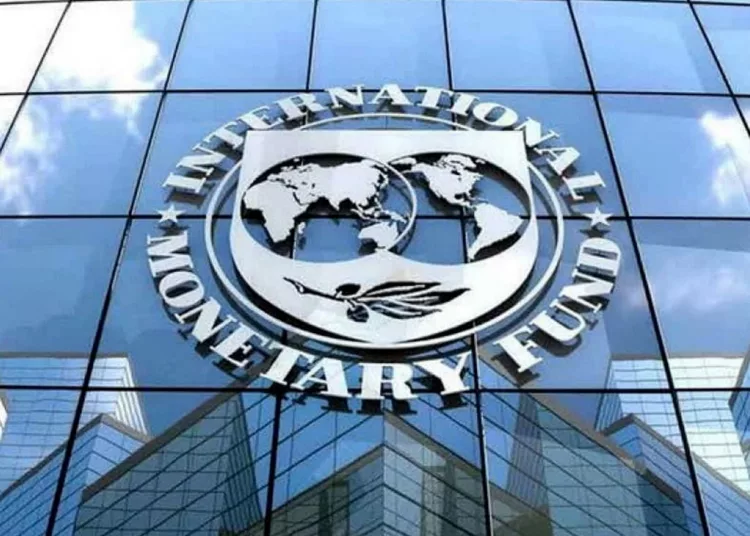The International Monetary Fund (IMF) has cautioned that Nigeria’s growing reliance on domestic borrowing could heighten risks to its financial stability, even as ongoing economic reforms continue to strengthen the country’s growth outlook and macroeconomic resilience.
IMF, in its Regional Economic Outlook for Sub-Saharan Africa, released on Thursday, said governments across the region, including Nigeria, are increasingly turning to local banks to finance spending. This development deepens the “bank-sovereign nexus” and could expose the financial system to sovereign risk.
As of June 2025, Nigeria’s domestic debt stood at N76.59 trillion, accounting for the largest share of the nation’s total public debt of N152.40 trillion. Federal Government bonds valued at N60.65 trillion take up a larger share of the debt, while Treasury Bills amount to N12.76 trillion.
The Fund in the report warned that while domestic borrowing has provided short-term relief amid tight global financing conditions, the trend “has not proved a panacea,” with elevated local interest rates, fragile banking sectors, and rising fiscal pressures threatening to erode recent reform gains.
Speaking at a press conference on the report, Abebe Aemro Selassie, Director of the IMF’s African Department, said, ” Our countries have been able to turn to domestic banks to sustain spending levels and economies. That has been a source of resilience, but we’re now sitting in a situation where there are significant vulnerabilities, particularly in those countries where public debt is high and interest rates are high. We are seeing some pressures on bank balance sheets.”
The IMF observed that interest payments in Nigeria have risen above 30 percent of government revenues, among the highest in the region. This has crowded out critical development spending and limited fiscal flexibility.
It also noted that the cost of new domestic borrowing in Nigeria is now higher than external borrowing, with local debt increasingly financed through the banking system. The Fund warned that this could trigger a vicious cycle as sovereign credit weakens, bank balance sheets suffer, credit to the private sector tightens, and economic growth slows.
According to Selassie, “pressure points include rising debt service costs, which are crowding out development spending; a shift towards domestic financing that has deepened the sovereign-bank nexus; inflation that, while easing at the regional level, remains in double digits; and external buffers that are under pressure.”
Despite these vulnerabilities, the IMF acknowledged that Nigeria’s macroeconomic reforms, notably exchange rate unification, tighter monetary policy, and fiscal consolidation, yield measurable results. It said these reforms have supported investor confidence and lifted the growth outlook for 2025.
“Sub-Saharan Africa’s economic growth is expected to steady at 4.1 per cent this year, with a modest pickup in 2026. This reflects ongoing progress in macroeconomic stabilisation and reform efforts across major economies, including Nigeria,” Selassie explained.
However, the Fund cautioned that Nigeria remains exposed to external repayment pressures, with $2.3 billion in Eurobond maturities due in 2025, one of the largest in Sub-Saharan Africa. It urged the government to deepen debt transparency and strengthen public financial management to reduce refinancing risks and borrowing costs.
“Enhancing debt transparency and strengthening public finance management can help reduce borrowing costs and unlock innovative financing. Publishing comprehensive public debt data and reinforcing budget discipline are key steps forward,” Selassie emphasised.
The IMF also highlighted the need for Nigeria to sustain revenue mobilisation efforts as a buffer against future shocks. It praised recent moves toward digital tax administration and compliance reforms, describing them as vital for strengthening fiscal capacity and public trust.
The IMF African Department Chief noted that “domestic revenue mobilisation is critical to increasing our countries’ potential. Reforms must go beyond technical adjustments. Governments must build public trust in tax institutions, strengthen institutional capacity, and ensure that revenues are used for the right purposes.”
On inflation, Selassie said the recent moderation in Nigeria’s price growth is consistent with tighter monetary policies and the exchange rate adjustments implemented over the past year. He noted, however, that the cost-of-living crisis remains acute.
“We find the decline in inflation consistent with the tightening of policies that have been undertaken. It encourages us, but there’s still some way to reach the government’s target. The cost-of-living crisis has hit our people way more than others.”





